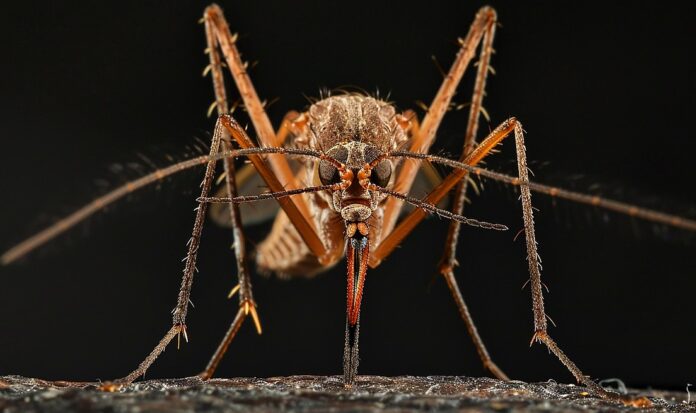Mosquitos have been the talk of the town in Revelstoke and Golden this summer.
This week, Tracy Hughes, communications coordinator for the Columbia Shuswap Regional District (CSRD), met with Cheryl Fippen, mosquito biologist and one of the CSRD’s Mosquitos Control contractors to talk about why more of these insects are flying around this summer.
Fippen presented Mosquito Control 101, a presentation on mosquito lifestyle, how their mosquito program works to treat mosquitos, and some of the limitations of the program.
“There are about 45 species of mosquitoes in Interior B.C.,” Fippen said. “Females are the only ones that bite. Males are actually pollinators.”
In Fippen’s presentation, she emphasized that not all mosquitoes are nuisances. She describes the components of the CSRD nuisance mosquito surveillance and mosquito reduction programs.
“The entire program for the CSRD and actually everywhere in the province, all the programs are aimed at treating mosquitoes in their larvae stage and treatments are made by ground or helicopter.”
She added that there aren’t any current programs that do any kind of mosquito “adulticiding”, using fogs or any chemicals to treat the adult mosquitoes.
Habitat mapping is another process they do, which included habitats being monitored for larvae in permanent ponds, rivers as the floods start, along with irrigation and seepage sites.
Fippen included some “take home messages” in her presentation:
- Mosquito control is never eradication, only reduction (too many variables)
- Mosquito populations are influenced by many factors, all of which are “out of our hands.”
- Mosquito reduction programs cannot replace the use of DEET, which Flippen says is the best mosquito repellent.
Tracy Hughes mentioned the increased conversation, specifically in Revelstoke with how the bad the mosquito situation has been this year.
Flippen said the team is “racing against time”, with mosquitos developing much quicker in low levels of water.



